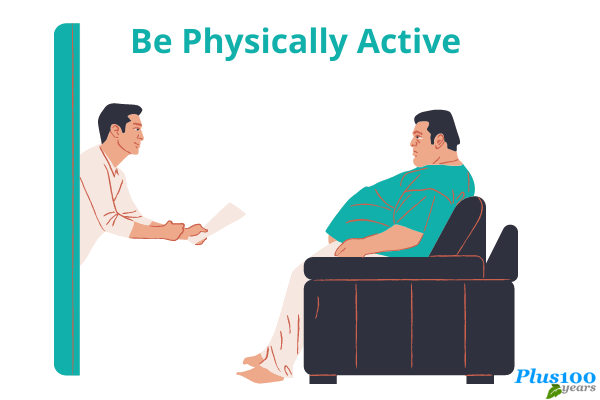
Obesity, in essence, is a disease that denotes having a massive amount of fat in one’s body.
Although most people consider it a cosmetic concern, it can increase the risk of various life-threatening diseases.
For example, if your BMI is over 30, it can lead to -
- Diabetes,
- Heart ailment (including coronary heart disease),
- Hypertension or high blood pressure,
- Cancer (stomach, liver, and colon).
However, unlike what you were thinking, obesity does not occur only due to overeating.
It can also be a result of excessive alcohol consumption, inherited factors, not being physically active, etc.
Besides, your diet choices can also positively or negatively impact this issue.
So, what’s the solution?
Well, if you’ve become obese due to immoderate alcohol consumption, then make sure to head to Infinite Recovery today.
The organization is known for helping alcoholic people and ensuring a better life altogether.
What Is The Cause Of Obesity?
As mentioned before, obesity can be caused by a plethora of factors. Hence, if you want to take care of this problem, you’ll need to diagnose the underlying issue first.
Here’s what you need to know about it.
Cause - 1: Genetics
Has someone in your family suffered from obesity before? Well, if so, your overall risk of developing this condition will increase even more.
Why?
Well, your genetics will affect how your body processes bodily energy and fat as a whole.
Therefore, even if you’re being careful regarding eating or sleeping, you can still get obese!
Solution: Drinking and eating moderately should be your top priority in this aspect. Leading a physically active life will also be essential in this aspect.
Cause - 2: Imbalance Diet
Yes, overeating junk food can, indeed, increase your BMI rate massively. However, that’s not the only problem here.
Aside from this, following a carbohydrate-based diet structure can also be detrimental to your health.
How?
Eating too much carbohydrate-rich food can stimulate the release of insulin from your pancreas. It, in turn, promotes the overall growth of fatty tissues and leads to weight gain.
Solution: Cutting down your carbohydrate intake should be beneficial for you. However, if it’s impossible for you to do so, you should start exercising as intently as possible.

Cause - 3: Overeating
Overeating, in essence, is a type of emotional response caused by anxiety or depression - and it’s pretty harmful to your health.
While being depressed, people generally don’t consider what or how much they are eating. This, sequentially, leads to overeating and increases the risk of obesity in people.
Various medications related to depression or anxiety can also affect your BMI rating and increase your weight to some extent.
Solution: If you aren’t a prominent food lover, then your urge to overeat is being caused by an emotional disorder. Thus, if you want to take care of this habit of yours, you’ll have to find out what’s triggering it at first.
Cause - 4: Underlying Diseases
Various ailments, such as insulin resistance, hypothyroidism, polycystic ovary syndrome, etc., can also contribute to obesity.
In some cases, the medications you’re taking for them can also promote the growth of fatty tissues to some extent.
Solution: If you’re suffering from any of the aforementioned issues, make sure to visit a doctor today.
Or else, it might affect your health even more and lead to other life-threatening conditions, such as coronary heart disease or liver failure.
Cause - 5: Not Being Physically Active
Due to following a hectic lifestyle, many of us are unable to exercise regularly. It, in turn, can increase our body’s BMI rate and make us obese.
Solution: Exercising regularly is the only viable solution to this issue. If you are otherwise a healthy person, you can try running or cycling (for at least 30 minutes).
However, if you cannot do either of these, we’ll ask you to take a walk for at least an hour regularly.
Frequently Asked Questions on Obesity in Adults - FAQs
In this section, we’ll be answering questions related to adult obesity, its causes, and its consequences. Let’s get started.
Q1: What Are 5 Consequences Of Obesity?
If not treated quickly, obesity can massively affect your health. The following are some of the consequences you might encounter if you are not careful enough -
An increasing rate of cholesterol,
High level of triglycerides,
Liver damage, and
Stomach problem.
Q2: What Are The 3 Main Causes Of Obesity?
Obesity can be caused due to a plethora of issues. However, some of the most prominent ones amongst them are -
- Eating too much at once, especially during an emotional breakdown.
- Living through stress and not getting an adequate amount of sleep.
- Belonging to a family that suffered from obesity for a prolonged period.
Aside from this, not exercising regularly can also lead to obesity in most individuals.

Q3: How Does Obesity Affect A Person Emotionally?
Social stigma, in essence, is the fundamental cause of emotional problems in an individual.
It can affect your psychological being and lead to increased depression, decreased self-esteem, and extreme anxiety.
In some cases, it might also make you eat disorganizedly, avoid physical activities altogether, and avert medical care.
Q4: How Can Adults Prevent Obesity?
Preventing obesity in adults can be pretty tricky, especially if you are already suffering from it. However, you can still take care of this issue by -
- Consuming less amount of unhealthy fat modules.
- Eating a considerable amount of dietary fiber.
- Opt for a vegetable-based diet.
- Engage in regular physical, primarily aerobic, activities.
- Focus on consuming low-glycemic index food items.
Q5: What Are The Signs And Symptoms Of Obesity?
- Some of the prominent signs and symptoms of obesity are -
- Shortness of breath,
- Excessive body fat, especially around the waist,
- Snoring,
- Sweating much more than usual,
- Having trouble sleeping,
- Accumulation of moisture in the folds of skin, etc.
Final Thoughts
If you don’t take care of it quickly, obesity can negatively impact your health and lead to various ailments.
Due to this reason, we’ll ask you to follow a specific diet structure and exercise regularly. You may also try collaborating with a nutritionist to get some help in this aspect.
Add new comment